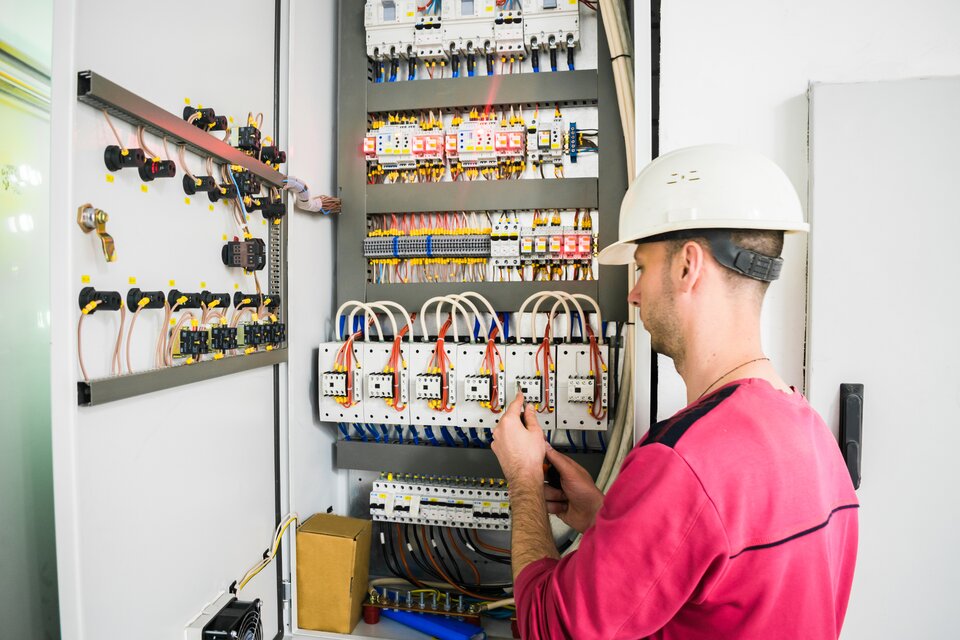Strona 1
ICT technician

Wire and radio connections have been the most common ICT links until recently. However, widespread implementation of new technologies such as optical links and fibres is observed these days. An ICT technician is a profession that involves installing, starting, configuring, and maintaining modern devices as parts of ICT networks.
The job of an ICT technician is mostly connected with ensuring continuous operation of radio system devices, transponders, TV, ICT, and radio broadcasting devices. Their professional duties include monitoring transmission signal parameters and device quality control. That’s why a person who works in this position should be generally familiar with analogue and digital electronics, and have detailed knowledge of optical fibre optoelectronics.
The labour market offers a number of career opportunities for ICT technicians. Dynamic development of the field forces them to continually improve their skills and learn new technological solutions. The ability to manage computer‑related tasks, including ICT software, is a must. Technical skills, diligence, patience and active involvement in the job are no less important. It is not uncommon for an ICT technician to work under pressure, so they must also be composed. Perfect candidates for the job should be team players, too.
The job involves operating various devices such as different types of meters, and it is often carried out outdoors. Failures of equipment or entire networks often come unexpected and therefore an ICT technician must be available all day long.
An ICT technician can find employment in companies that are in ICT and IT industry, as well as in those that provide service of ICT equipment.
Qualified specialists usually work in well‑equipped air‑conditioned, ventilated, and well‑lit facilities. Sometimes ICT technicians are exposed to intense noise. On the bright side, however, the job is highly stimulating, challenging and rewarding.
Network and telecommunications equipment installer

The network and telecommunications equipment installer is a highly prospective profession, related to telecommunications equipment and system installations.
A person interested in the pursuit of this profession should have technical skills, be disciplined and persistent. The important skills of such a person are the ability to work in a team and to read documents containing installation plans.
The activities performed by the installer require great perceptiveness and dexterity.
A candidate for this job needs to be authorised to work with devices under voltage in order to be hired at any position within this profession. A useful skill is a good work organisation. Having a driving license is an asset too.
The network and telecommunications equipment installer performs installations, maintenance, overhaul and repairs of telecommunications cable lines, telecommunications and information technology installations as well as antenna installations of radio and television systems.
The network and telecommunications equipment installer hired on the position related to the installation of telecommunications networks will be responsible for the construction and operation of telecommunications networks (cable ducts, cable pipelines, underground, duct and overhead ones). In this case, they will operate in accordance with the provisions of building and telecommunications regulations.
Work related to the telecommunications systems is related to the construction and operation of telephone, information technology, cable, antenna, signaling, etc. In such cases the work is performed in conformity with applicable standards and regulations.
The network and telecommunications equipment installer who installs telecommunications equipment deals with the installation and operation of subscriber telecommunication devices of various types (telephone sets, subscribers' central units, terminals, modems, etc.).
The network and telecommunications equipment installer can work at heights, in trenches, basements and below ground.
The development of the telecommunications industry causes a great demand for installers who are indispensable in order to replace old telecommunications systems (e.g. copper cables) with new technological solutions.